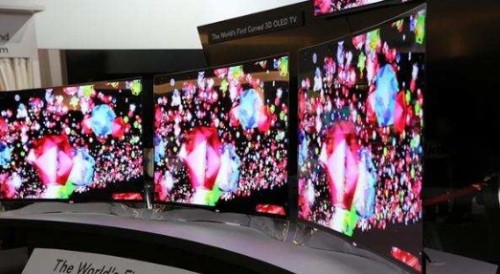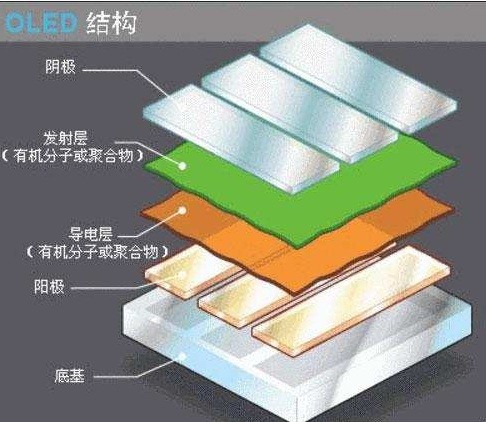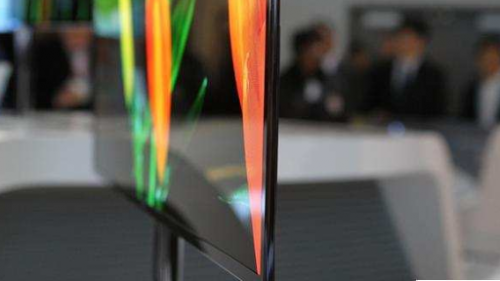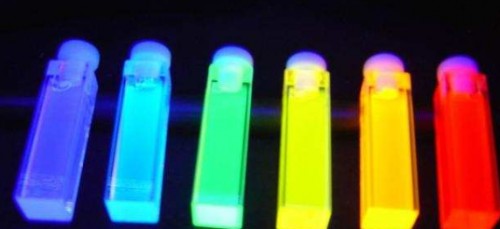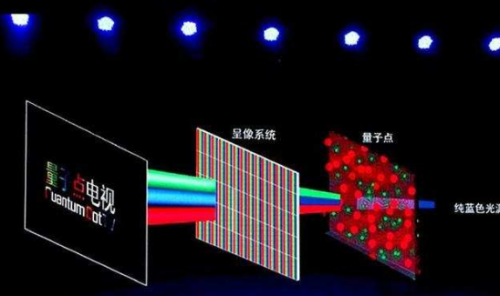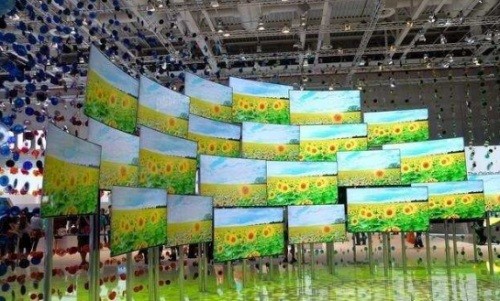At the recent IFA show in Germany, South Korean company Samsung demonstrated the evolution of the display industry and intended to suggest to the outside world that QLED (quantum dot) is the future display trend. This of course caused the dissatisfaction of LG on the OLED, so it countered the trend and revealed the shortcomings of QLED from the technical level. The mutual tearing of display technology between Samsung and LG is not once or twice. As a leading enterprise in the display industry, its every move is related to the future interests of its own enterprises and the right to speak in the development of the industry. It is also normal to not give each other in this regard. So, as two infinite possibilities, is it really necessary to tear each other? Before answering this question, let's first take a look at the two technologies of OLED and QLED. OLED, also known as organic light-emitting diodes, can be said to be a revolutionary in the display industry. Its structure is very simple, consisting of a thin and transparent indium tin oxide (ITO) with semiconductor properties, connected to the positive electrode of electricity, and another metal cathode, wrapped in a sandwich structure to form an OLED. Because of its self-illuminating properties, it directly discards the traditional liquid crystal display technology that requires a liquid crystal panel and a backlight. And its light-emitting principle is very simple, using a very thin layer of organic polymer material and a glass substrate, when the current is passed, the organic material will emit light, and no backlight is needed at all. Compared with the traditional liquid crystal display technology, due to the simplified structure, the OLED can be made lighter and thinner, more energy-saving and environmentally friendly; without various problems caused by uneven LCD backlight, the color display will perform better and the contrast is infinite. Large; there is no defect in liquid crystal display - the tailing problem, that is, the response speed of dynamic pictures, which has been the criticism of traditional liquid crystal display technology, and OLED has no such defects, it can be said that the response speed is faster; finally, there is no The health hazard brought by high-frequency blue light, the self-illuminating property makes OLED not have the "highlighting bead" in the traditional liquid crystal display, and can directly ignore the damage of blue light. It can be said that OLED is more healthy and eye-protecting in this respect. But the defects of OLED are also obvious, the biggest drawback is the high price. Since the current mainstream is still liquid crystal display technology, OLED is basically in its infancy, so its production cost is very high, which is why it is not popular on the market. Industry insiders speculate that Samsung, Sony and other manufacturers have launched OLED TVs, and soon gave up, high production costs may be the main factor. QLED, also known as quantum dot light-emitting diodes, can be said to be a defender of the display industry from the rumors of the outside world. According to the vice president of OLED sales, quantum dot TVs on the market only add a quantum dot film to the liquid crystal. That is to say, it still belongs to the category of traditional liquid crystal display technology. Similar to previous CCFL (Cold Cathode Fluorescent Lamp) and WLED (White LED). The principle is also very simple. The red and green quantum dot optical materials with different diameters are illuminated by a blue backlight to form three primary colors of red, green and blue (RGB), and then an image is formed by an imaging system such as a filter film or the like. This technology is called quantum dot backlight technology from the professional level, mainly to solve the problem that the backlight color of ordinary LCD TV is not bright enough to reach the best visual experience. For Samsung's choice of QLED, outside rumors are generally the case. However, is QLED really just like this? Quantum dot LED display technology based on electroluminescence characteristics is the QLED in Samsung! This is a more advanced application of quantum dots in the field of display technology, and it has not appeared on the market at present. It is no longer that blue light emits white light through a layer of quantum dot material to illuminate the liquid crystal screen, but is directly driven by electricity, so that the quantum dots themselves emit light and produce images by color mixing. Since the quantum dots emit light themselves, liquid crystals, color films, and backlight units are eliminated. This makes QLED and OLED have similar principles in display mode. Compared with OLED, QLED can directly emit very pure high-quality monochromatic light of various colors according to its diameter, while OLED has to pass through the filter to get a solid color, while the filtered color is purer, but There will also be distortions; and quantum dots use inorganic materials that are not easily oxidized; most importantly, QLED materials are low cost. From these aspects, QLED seems to be better. However, OLED has come to the forefront, pre-emptive in the market, and a large number of media reports have accumulated a lot of advantages. In general, QLED is good, OLED is worth mentioning, both technologies have evolved from traditional liquid crystal display technology, and have been sufficiently innovative. In the future, both technologies have unlimited possibilities. As for who can lead the trend of the display industry, who can become the hegemon of the new generation of display technology, the market has the final say. T Copper Tube Terminals,Non-Insulated Pin-Shaped Naked Terminal,Copper Cable Lugs Terminals,Insulated Fork Cable Spade Terminal Taixing Longyi Terminals Co.,Ltd. , https://www.lycopperterminals.com